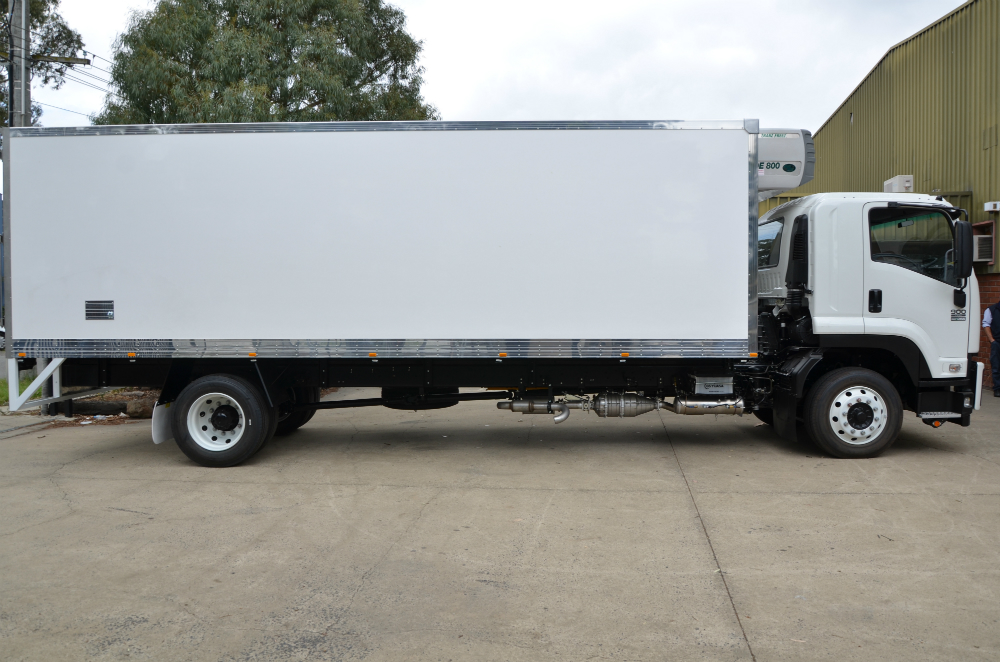When it comes to transportation and logistics, refrigerated trucks play a crucial role in ensuring the timely and safe delivery of perishable goods. These specialised vehicles are designed to maintain a specific temperature range throughout the journey, enabling businesses to transport food items, pharmaceuticals, and other sensitive products without compromising their quality.
But one question that often arises is whether refrigerated trucks use more fuel compared to regular trucks. In this blog post, we aim to answer this question and provide you with a better understanding of how these vehicles operate.
The working principle of refrigerated trucks
To understand fuel consumption in refrigerated trucks, it’s essential to first grasp the working principle behind them. These trucks are equipped with a refrigeration unit that is powered by either a small diesel engine or an electric motor. This unit is responsible for maintaining the desired temperature inside the truck’s insulated cargo space.
The refrigeration system works by removing heat from the cargo area and releasing it outside through a condenser. To keep the cargo at a specific temperature, the refrigeration unit continuously cycles between cooling and defrosting modes. This process requires energy to power the compressor and other components, which in turn, affects fuel consumption.
Factors affecting fuel consumption in refrigerated trucks
Several factors can impact the fuel efficiency of refrigerated trucks, such as:
- Cargo load: The weight of the cargo being transported can significantly affect the truck’s overall fuel consumption. Heavier loads require more power to move, resulting in increased fuel usage. Therefore, the type and quantity of cargo being transported can influence how much fuel is consumed by a refrigerated truck.
- Temperature settings: The desired temperature for the cargo also plays a role in fuel consumption. The higher the temperature setting, the more energy is required to maintain it, resulting in increased fuel usage. On the other hand, if the temperature setting is lower, less energy will be needed, and fuel consumption will decrease.
- Driving conditions: Like any other vehicle, driving conditions can also impact the fuel efficiency of refrigerated trucks. Driving on steep inclines or in heavy traffic can consume more fuel due to increased engine workload.
Do refrigerated trucks use more fuel?
Coming back to the main question, do refrigerated trucks use more fuel? The answer is yes, but the amount may vary depending on the factors mentioned above. The refrigeration unit in these trucks consumes a significant amount of energy to maintain the desired temperature for the cargo. This, along with other factors, can result in increased fuel usage compared to regular trucks.
Refrigerated Trucks for Sale Victoria: Tranzfreeze Refrigeration
If you’re looking for Refrigerated trucks for sale in Victoria, look no further than Tranzfreeze Refrigeration. With over 30 years of experience in the refrigerated transport industry, we offer a wide range of high-quality and reliable trucks for sale.
Browse our inventory today and find the perfect refrigerated truck to meet your business needs! If You have any questions about our trucks or services, please don’t hesitate to contact us. Our team of experts will be more than happy to assist you.
Conclusion
Refrigerated trucks are an essential part of the transportation industry, providing a safe and efficient way to transport perishable goods. While these vehicles do consume more fuel compared to regular trucks, their specialised capabilities make them a necessary investment for businesses dealing with temperature-sensitive products.
At Tranzfreeze Refrigeration, we are committed to providing top-of-the-line refrigerated trucks for sale in Victoria. Contact us today and take the first step towards expanding your refrigerated transport business!


